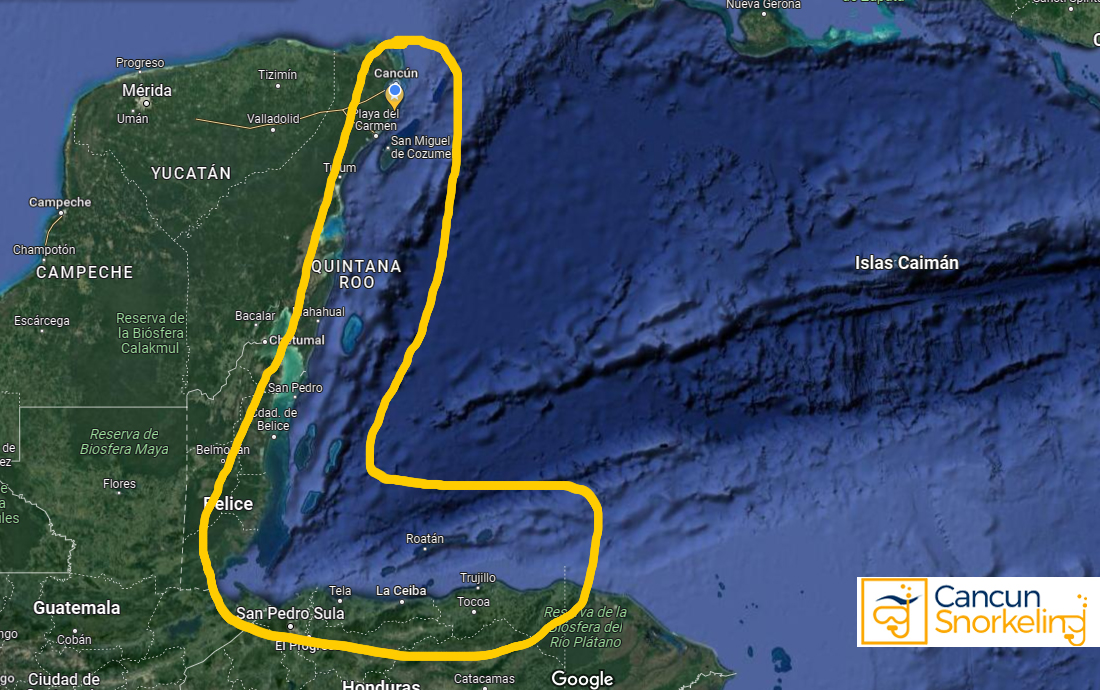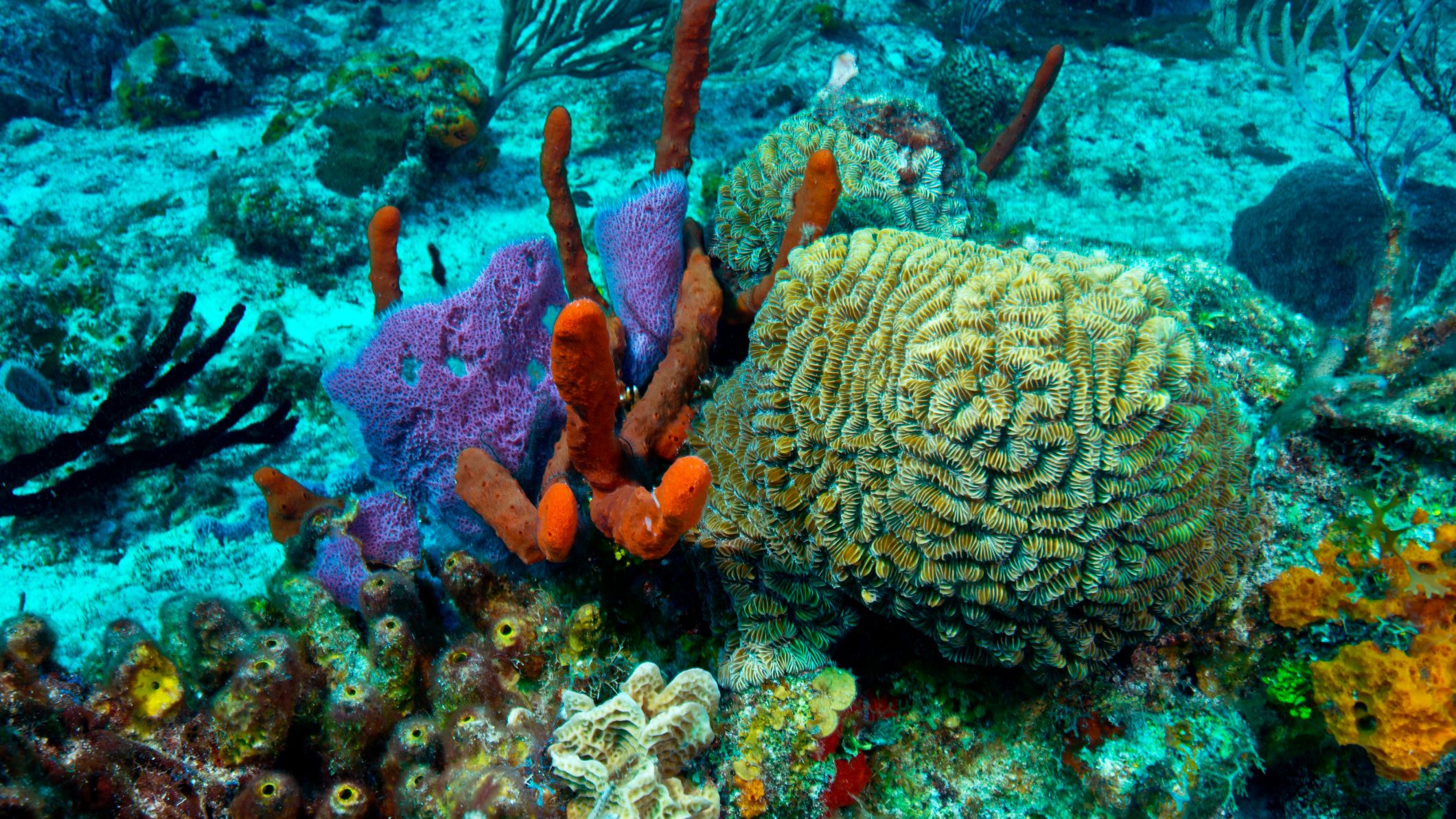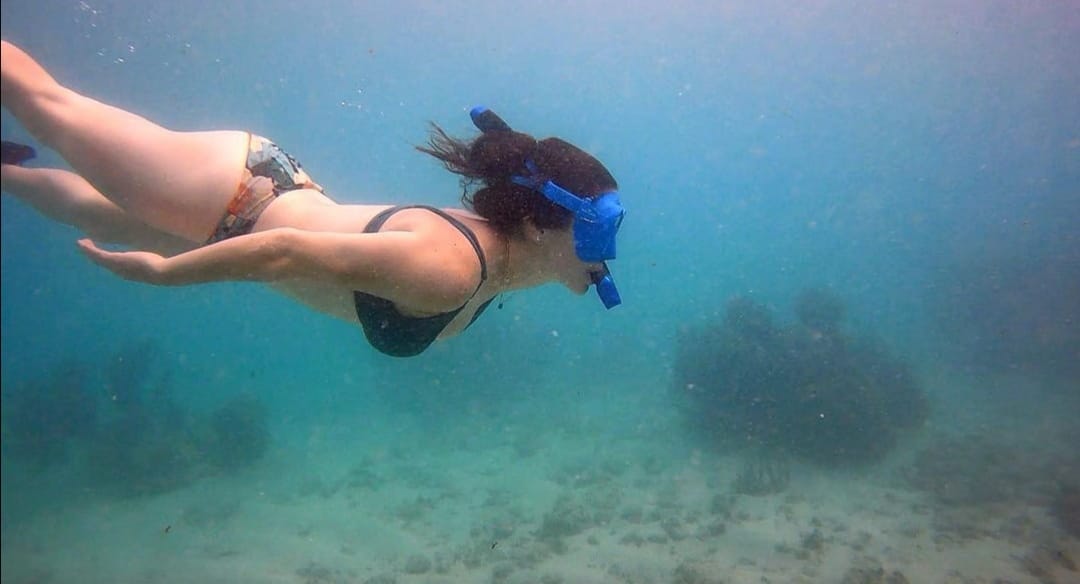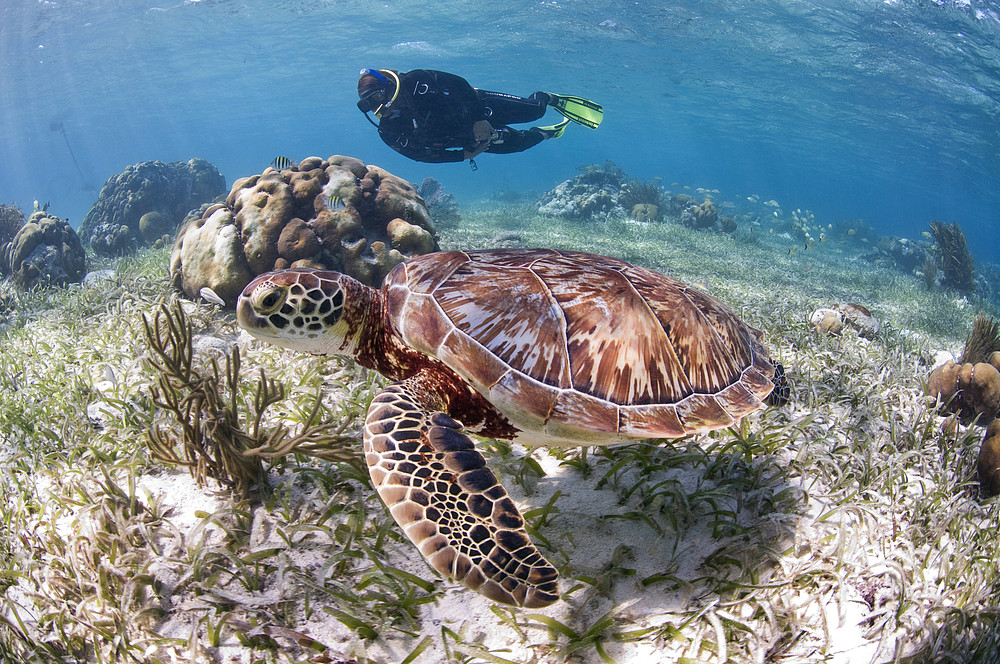My mother, (age 66), my self (42,) and my daughter (18) all went snorkeling together we had an awesome time. The guides were funny and had a lot of information. They...
In September 13, 2024The Mesoamerican Barrier Reef System is the largest transboundary reef in the world and contains the second longest barrier reef in the world. The system extends across four countries (México, Belice, Guatemala and Honduras) and more than 1,000 km of coastline, and is a key place for the protection of biodiversity, including sea turtles, more than 60 types of corals and more than 500 species of fish that are are in danger of extinction.
Millions of tourists visit the region every year, drawn by the chance to dive off the beaten path, swim with the largest concentration of whale sharks on the planet, and relax on spectacular beaches.

The reef system forms the habitat of more than 65 species of stony corals, 350 species of molluscs and more than 500 species of fish. It is an important refuge for numerous protected or endangered species, including sea turtles ( green sea turtle, loggerhead sea turtle, leatherback sea turtle and hawksbill sea turtle), queen conch, Caribbean manatee, American crocodile, Morelet's crocodile, elkhorn coral and black coral.
The reef system is also part of the habitat of one of the largest populations of manatees in the world, whose number is estimated between 1,000 and 1,500 individuals.Some areas in the northern part of the reef system, close to Isla Contoy in Mexico, are part of the habitat of the whale shark, the largest fish on the planet. Whale sharks, normally solitary, congregate in social groups in these areas to mate.

Coral reefs are threatened by climate change, nutrient discharge through rivers and coastal areas, fishing, and emerging diseases. In particular, the Mesoamerican reef system is considered a Critically Endangered (CR) ecosystem according to the criteria of the IUCN Red List of Ecosystems due to the projection of the negative effects of coral bleaching on the cover of living corals and the fish biomass.
Why it is so important to preserve it
The Mesoamerican barrier reef not only represents a unique biodiversity that deserves protection, but also provides ecosystem services that are essential for communities. More than two million people depend directly on the MAR's marine resources for their survival. The reef has ecosystem functions that are essential to coastal communities, such as protecting coastlines from severe storms and supporting commercial and local fisheries, local consumption, and tourism.

Mesoamerica Reeef conservation efforts
On June 5, 1997, the presidents of Mexico, Guatemala, Honduras, and the Prime Minister of Belize met in Tulum, Quintana Roo, to sign, within the framework of the International Year of Reefs, the Declaration of Tulum. In said declaration, they agreed to adopt the "Mesoamerican Reef System Initiative" (SAM) that promotes its conservation through its sustainable use. The strategy of the Mesoamerican Caribbean Reef System is framed within:
*The Convention on Biological Diversity, established as part of the agreements reached at the United Nations Conference on Environment and Development, held in Rio de Janeiro in 1992.
*The Tuxtla I and II cooperation agreements between Mexico and the Central American region, signed by the presidents of the area.
*The agreements made within the Central American Commission for Environment and Development, where promoting conservation actions for the Mesoamerican Biological Corridor project stands out as a relevant point.
*The Cartagena Convention for the protection and development of the marine environment in the Greater Caribbean region.
The ecosystem is also the site of two major international conservation initiatives, one already well established and one just beginning.

In 1998, the World Wide Fund for Nature identified the Mesoamerican Caribbean reef as a priority ecosystem and an ecoregion of global importance, for which a conservation effort began. long-term reef.
In Cancun Snorkeling we want to take part of this preservation effors, so all our tours are performed with all the respect to the environment. We kindly ask you to avoid using sunblock and to use instead, a hat and a sunblock rash guard and very important... do not touch the corals and do not take anything out of the water. Thank you!
Did you like reading us? Keep the conversation going on social media, share and follow us:
Facebook: Facebook
Instagram: Instagram
My mother, (age 66), my self (42,) and my daughter (18) all went snorkeling together we had an awesome time. The guides were funny and had a lot of information. They...
In September 13, 2024Luis and the other tour guide (can’t remember the name sorry) were very nice and patient with everyone. They kept checking in on everyone to make sure no one got left...
In June 06, 2024Easy to get picked up and a great time snorkeling out in Puerto Morelos! Our guide and coral...
In April 25, 2024Our tour guides - Luis and Jesus - were amazing. They were very kind, patient and great at guiding us through the reefs. They would point out large aquatic life and...
In April 11, 2024We took our family of 9 on a snorkel trip with this company and had the best time! Our guides were super friendly and you could tell they love what they...
In February 29, 2024Our guides were amazing and definitely had a great time. I would recommend this to all my family and friends....
In February 29, 2024An amazing time seeing the reef! The staff were incredibly helpful and quick to point out...
In February 23, 2024The guides were great. Good time, had by all...
In February 22, 2024I have snorkeled at many locations, and this one near Puerto Morelos y undoubtedly one of the bests. Highly recommend...
In December 08, 2023They did an excellent job of taking care of everyone when we went snorkeling....
In December 03, 2023